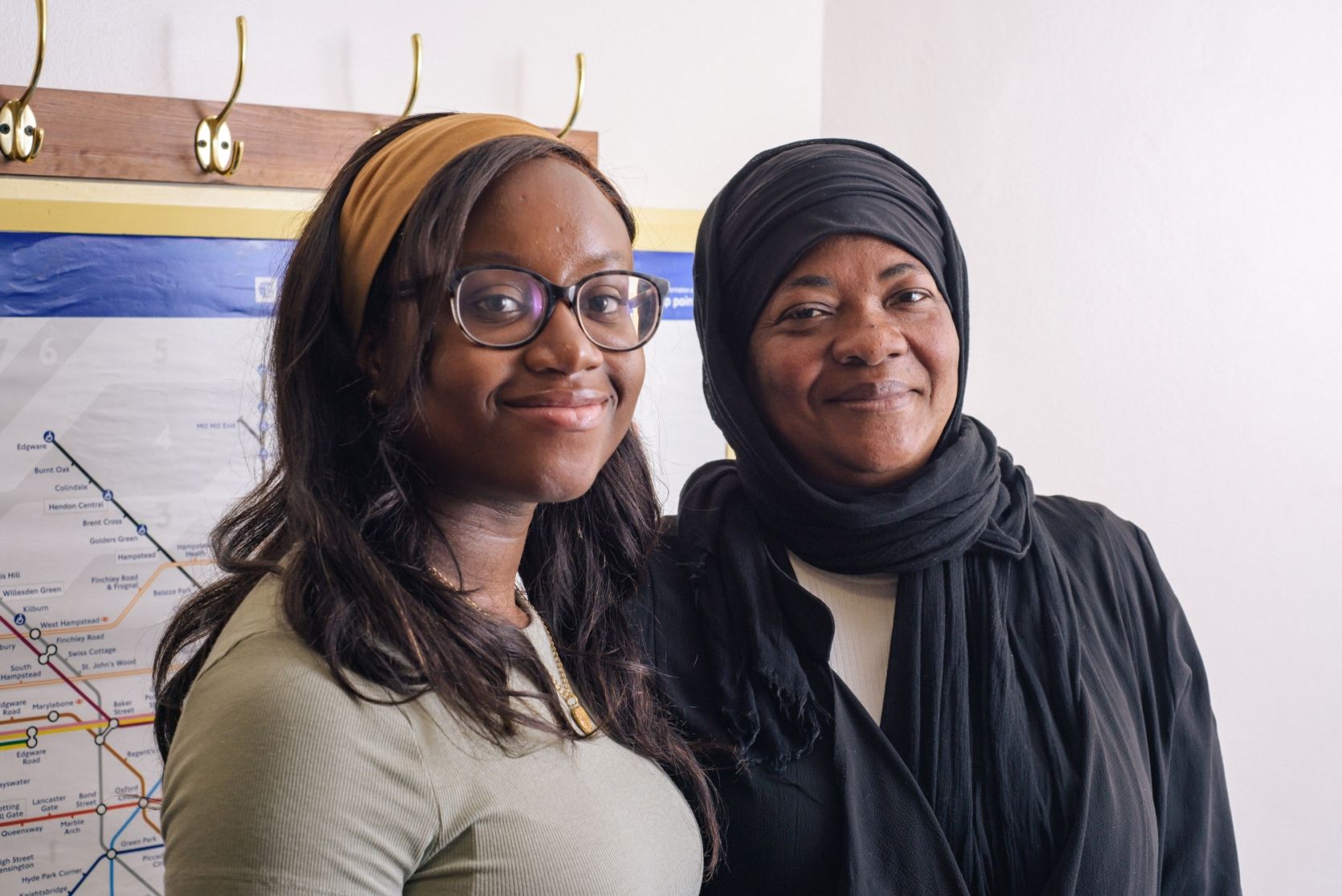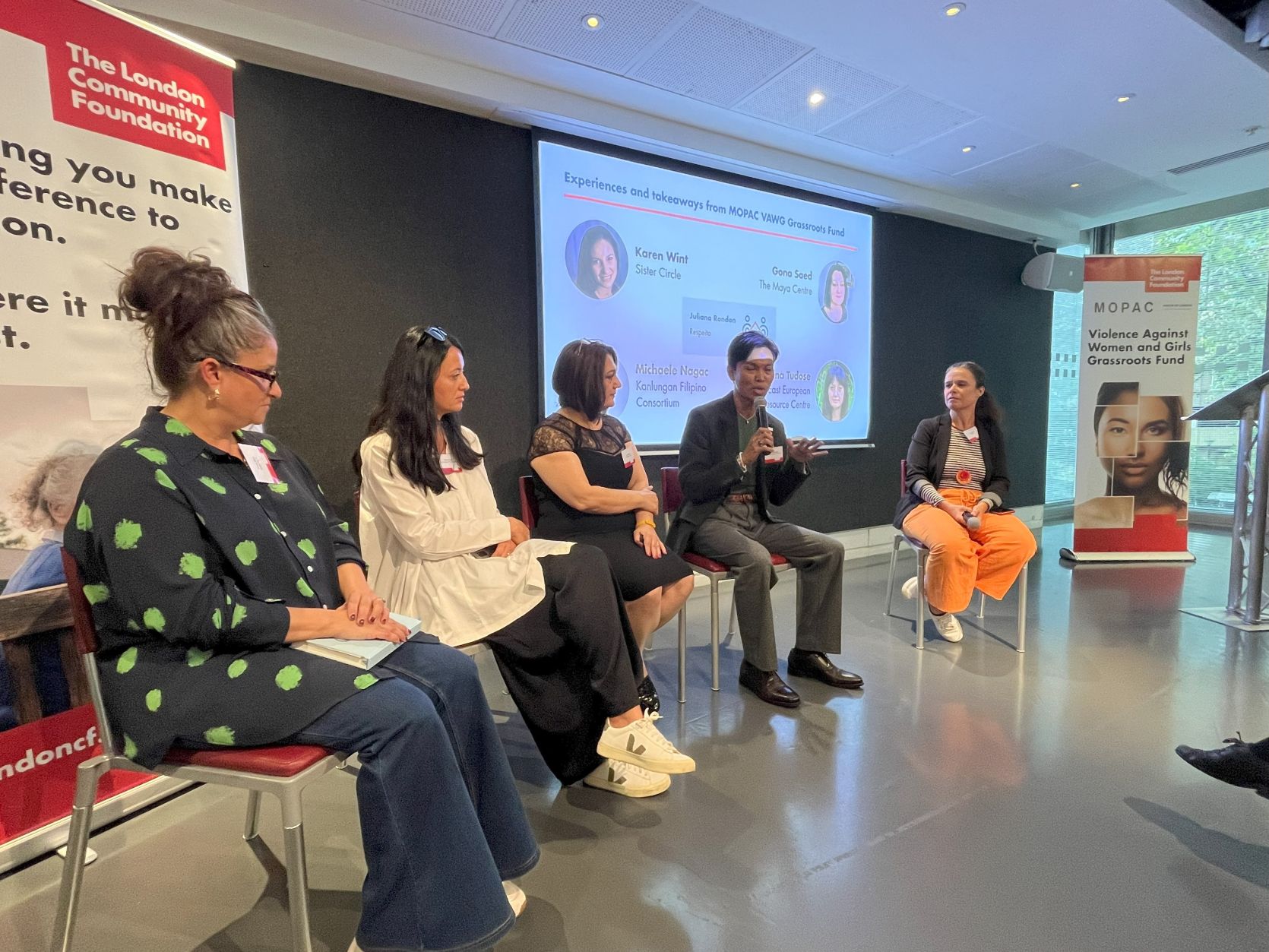
Holding the line

Across the Violence Against Women and Girls (VAWG) sector, advocates, counsellors, caseworkers, and leaders are the backbone of service delivery - yet they are under immense strain. Our VAWG Programme Manager, Nimat Jaffer, shares how recruitment and retention are consistent challenges across our VAWG funds, and the sustainability of services relies on funding stability.
Over recent years, insights from the multi-year grants from the Mayor’s Office for Policing and Crime (MOPAC) VAWG Grassroots Fund and the Ministry of Justice (MOJ) Domestic Abuse (DA) / Sexual Violence (SV) and Independent Domestic Violence Advocate (IDVA) / Independent Sexual Violence Advocate (ISVA) Fund are painting a picture of how frontline staff are the ones literally holding the line for survivors in the face of overwhelming demand, low pay, and systemic instability. Recruitment and retention have emerged as defining challenges, and the future sustainability of services will depend on the funding landscape.
Recruitment: isn’t it just an HR challenge?
Time and time again, organisations have told us that finding and keeping the right staff has been one of their biggest hurdles. Vacancies in frontline roles often remained unfilled for months because of the specialist skills required. Many of these frontline posts require counsellors and caseworkers with specific qualifications and accreditations in order to meet funding requirements. In addition, fluency in community language and being culturally informed proved especially difficult to secure. Even when good candidates were identified and upskilled, offers or staff were lost for a combination of reasons:
- Lower pay compared to other sectors which was worsened by the cost-of-living crisis. One organisation noted losing experienced workers to supermarkets and local councils where wages were higher and stress lower.
- High stress and emotional toll for frontline workers supporting survivors with multiple, complex needs. One service explained how working with survivors of child sexual abuse placed particular strain on staff, increasing the risk of vicarious trauma and burnout.
- A shrinking pool of experienced staff as many left or retired after Covid. Some organisations found themselves with fewer seasoned practitioners and a growing reliance on new recruits who often lacked the right background.
- Competition from other employers, who can offer higher salaries and benefits. At one stage, recruitment became a competitive market. Candidates often had multiple offers and were quick to accept better-paid or faster-moving roles elsewhere.
- Specialist skills required, leaving too few qualified applicants. Several organisations reported receiving applications from candidates outside the VAWG sector. While some were promising, they required significant additional training, slowing the pace of service delivery.
- Best practice lengthened recruitment processes, leaving candidates taking other offers. Some organisations rightly involved service users in interview panels but acknowledged that convening those panels slowed processes down, sometimes costing them strong candidates.
As these are small grassroots organisations, the impact is immediate.
Vacancies mean longer waiting times for referrals, creating bottlenecks that survivors can’t afford due to crisis or dangerous circumstances. Re-advertising roles not only doubles the workload for managers but also delays service delivery with knock-on effects for funding timelines – all while remaining staff are left to absorb the strain. This pressure leads to increased sickness, stress and ultimately more staff leaving. Leadership instability has also played its part, as changes with management have left some organisations struggling with continuity and direction.
Every gap in staffing sets off a ripple effect: survivors waiting longer, staff under more pressure, and services stretched.
Retention: holding on to those who hold the line
Recruiting is only half the story. Retaining skilled staff has required equal effort. Many organisations reported staff leaving because salaries simply couldn’t keep pace with rising rents, bills, and childcare costs.
Charity leadership teams are especially aware of the impact this has on staff who stay and the risk of burnout. As heartwarming as it’s been to see the dedication and commitment, especially from one organisation who report that a group of senior counsellors collectively worked an additional 30-35 hours extra a week to reduce the waiting list. Another organisation rightly shared:

Charity work should not rely on the charity of its workers.
Despite the pressures, organisations are working hard to protect their staff and stabilise teams:
- Practical support: One organisation introduced an in-house crèche so staff with young children could continue working. Others offered cost-of-living bonuses or wellbeing budgets to ease day-to-day pressures.
- Wellbeing and resilience: Reflective practice sessions, one-to-one supervision, and mental health training were delivered to help staff manage the emotional impact of working with trauma.
- Investment in skills: Organisations funded training in trauma-informed care, safeguarding, and specialist areas such as immigration law and harmful practices to support complex casework and to create pathways for career progression.
- Flexibility and adaptation: Where recruitment proved impossible, some expanded the hours of part-time staff to avoid long onboarding processes, though this carried risks of burnout.
These interventions make a difference, but what really enables them is funding security. One organisation reported 100% staff retention since their grant began, crediting it directly to the stability of multi-year funding. That stability allowed them to invest in their team, reduce sickness, and build a culture of growth rather than survival.
Funding: the thread that ties it all together
Staffing challenges aren’t isolated HR issues. They are both cause and consequence of delays, turnover, and burnout - all of which undermine service continuity, compromise survivor safety, and threaten organisational stability.
Our MOJ DA/SV IDVA/ISVA Grants Programme Manager, Sam Smallcombe explains that at the heart of it all is funding. “Short-term contracts make posts harder to fill and leave staff uncertain about their futures. By contrast, multi-year funding gives organisations confidence to plan, to invest in staff development, and to offer genuine stability. It tells staff they are valued and that there is a future for them in the sector.”

The stability of this funding has allowed us to build momentum rather than brace for cuts. That stability is what keeps our staff here, learning and growing with us.
The specialist VAWG sector is led by and for women from minoritised and marginalised communities. It holds unique expertise built up over decades. When an experienced frontline worker leaves, they don’t just lose skills and knowledge - they risk losing relationships, and continuity of care for survivors.
These organisations continue to demonstrate remarkable resilience, adapting to pressures like leadership changes, office moves, or restructuring. Yet no amount of resilience can substitute for stability. That stability comes from funding security.

Thanks to this fund - we’ve had fewer sick days and improved staff morale as IDVAs are no longer doing dual roles.
The MOPAC VAWG Grassroots Fund and the MoJ DA/SV IDVA/ISVA Fund have shown what a difference secure, multi-year funding makes and recognise that to truly sustain the sector, it must be paired with fair remuneration, flexibility with grant budgets, and investment in capacity-building and learning from organisations themselves. Together, these create the conditions for the VAWG sector to strengthen their organisations. It is more than good practice; it is the foundation on which sustainable services are built.

Find out more
For more on these funds, our work in the VAWG space and other funding programmes run by The London Community Foundation, subscribe to our supporter newsletter
